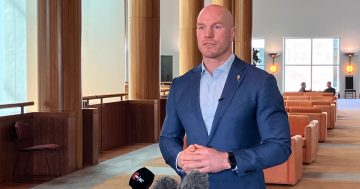
Lobbying politicians doesn’t have to be murky. Photo: File.
It’s called soft corruption.
A political donation rather than an outright bribe of an MP.
The promise of a well-paid, low-hours job after leaving politics.
An all-out, wine-flowing, no-expense-spared lunch at an exclusive restaurant to celebrate a minister’s birthday.
When these (and a seemingly endless string of similar tactics) are deployed with the purpose of seeking to influence a political outcome – a policy decision – and are successful, that is known as soft corruption.
Except it’s not really that soft anymore.
It’s pretty blatant and there’s really no other way to describe it than ‘corrupt’.
But it’s the recipients who are more at fault here.
The most disappointing aspect is that too many politicians partake of this type of generosity from those who seek to influence their decisions, and it is a major contributing factor as to why so many Australians distrust government in the 21st century.
For the most part, lobbyists are just being lobbyists and playing within the rules, being as creative as possible to secure outcomes favourable to their clients and bosses.
Not all, of course. Some lobbyists are happy to pay no heed to the law and wade around in the murky waters of political skullduggery.
But by and large, the things that irritate the most are the free lunches, the job offers, and the donations, all offered by lobbyists with the hope of a return on investment and accepted by politicians who enjoy the feeling of being important – and it’s all within the rules.
That’s why the rules need to change.
It shouldn’t be okay for the Communications Minister to be wined and dined in lavish style on her birthday by the gambling lobby, which she regulates.
That’s what happened to Michelle Rowland last year and, surprise, surprise, no rules were broken.
Neither were rules broken by the growing number of former ministers now employed or hanging their own shingles as ‘consultants’ in the very industries over which they once had portfolio oversight.
The rules need changing.
Independent MP Monique Ryan has introduced a private members bill seeking to bring about some of these overdue changes to how lobbying is practised in this country.
She wants a new, improved lobbyist register and a tougher code of conduct with harsh penalties – ones that include all lobbyists, not just those working for lobbying firms or the self-employed, but for in-house corporate lobbyists for big business, which is by far the larger portion of the lobbying sector.
“If a lobbyist breaches the current code of conduct, there’s essentially no punishment,” Dr Ryan says.
“This act would change that, creating regulations with teeth so we can hold lobbyists and government decision-makers to account.”
Dr Ryan also wants to stop the revolving door of MPs (mostly ministers) and their staff leaving politics for the private sector where they can exploit and profit from the ‘trade secrets’ learned in government.
And she wants to open up ministerial diaries for the whole world to see who’s been courting those in power.
Lobbying governments and politicians generally is a legitimate profession and an important part of the policy process.
There is even some nobility in an individual who can help an organisation gain access to political power where they might otherwise have struggled to do so on their own.
Policymakers should make informed decisions after learning the strengths and flaws of as many sides of an argument as possible.
Lobbying for commercial contracts is also legitimate and quite often necessary.
And there is nothing wrong with lobbyists making the most of their contacts to open doors and to provide input.
But when money, gifts and positions are offered and accepted as forms of political persuasion, legitimacy no longer applies.
It’s where the political system, the lobbying sector and some politicians fail.
Dr Ryan’s bill is a wholly decent piece of legislation that will hardly get the parliamentary support it deserves.
Soft corruption is also known as ‘grey corruption’ and we all know politicians love grey areas – it’s where many of them live and look out for themselves.
Original Article published by Chris Johnson on Riotact.







